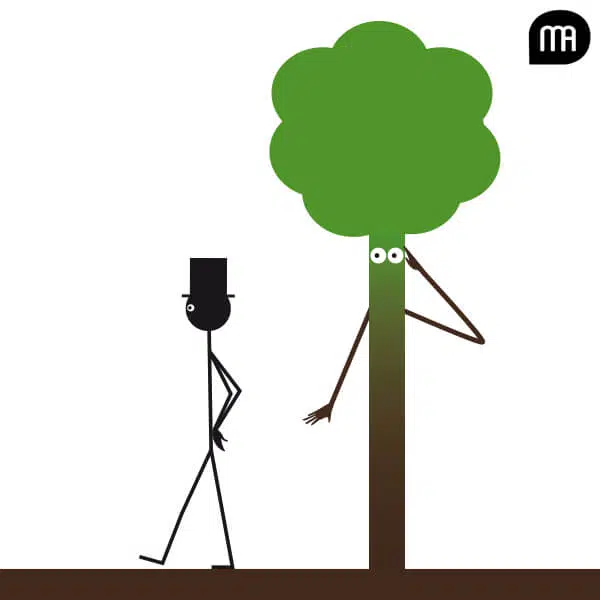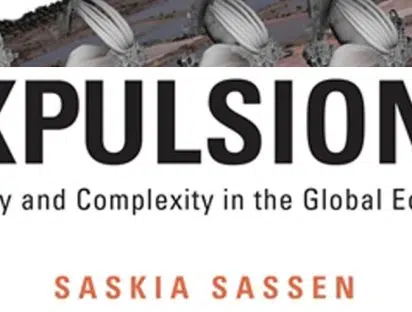
The European Green Deal and the Green New Deal
The “Green Deal,” presented on 11 December by the European Commission, is based on this contractual spirit (2). Although it is described as a “new growth strategy” and not a “contract” (3), it stresses that “involvement and commitment of the public and of all stakeholders is crucial to its success.”
“Green Deal” evokes the “Green New Deal” recently defended by the American essayist Jeremy Rikfin (4). However, the expression seems to have been coined by the journalist Thomas Friedman (5). In an article published in the New York Times in January 2007, one year before the presidential election which led to the election of Barak Obama, he proposed to develop a major project, a New Deal, to put an end to the dependence of the United States on fossil fuels:
“The New Deal [which was implemented by President Roosevelt between 1933 and 1939] was not built on a magic bullet, but on a broad range of programs and industrial projects to revitalize America. Ditto for an energy New Deal. […] It takes a Green New Deal because to nurture all of these technologies to a point that they really scale would be a huge industrial project.”
In a recent speech on the French radio channel France Culture (6), Jeremy Rikfin clarified the status of the Green New Deal. It is the result of a change in world vision. It is due, in particular, to the young people of generation Z and the millennials:
“They declared a climate emergency and called for a Green New Deal. […] This is the first time that two generations around the world have begun to consider themselves an endangered species. All other borders suddenly disappeared. And other living creatures are beginning to be seen as part of the endangered evolutionary family, and the biosphere as the invisible community. This is an extraordinary transformation in human understanding of our presence on the planet.”
The natural limits to human perfectibility and progress
Rifkin describes this change in worldview in his recent book, inspired by Condorcet’s statement:
“[…] No bounds have been fixed to the improvement of the human faculties; that the perfectibility of man is absolutely indefinite; […] the progress of this perfectibility, henceforth above the control of every power that would impede it, has no other limit than the duration of the globe upon which nature has placed us. The course of this progress may doubtless be more or less rapid, but it can never be retrograde; at least while the earth retains its situation in the system of the universe, and the laws of this system shall neither effect upon the globe a general overthrow, nor introduce such changes as would no longer permit the human race to preserve and exercise therein the same faculties, and find the same resources.” (7)
But the “general overthrow” Condorcet speaks of has happened or is about to happen. Which leads Rifkin to affirm that
“the Green New Deal infrastructure is designed for this reality. Its components, applications, and operations will enable us to adapt to a once pacified and domesticated nature that is now rewilding – and hopefully to survive the escalating climate events that now envelop the Earth.” (4)
The choice of a Green New Deal is necessarily imposed on human beings. There is no other option:
“It is the first priority facing the human species. All other priorities are secondary. It is the only priority: we must face the extinction of the species, move into the age of resilience and ensure a future for our children, our grandchildren and all creatures on earth. There will be no excuse if we do not.” (6)
Three enlightening reflections from Simone de Beauvoir
What has just been said, in particular Rifkin’s remarks, evokes the reflections proposed by Simone de Beauvoir in her article “Moral Idealism and Political Realism,” published in 1945 (8).
a) The first evocation might concern the two worlds discussed at the beginning of our article. Those mentioned by Simone de Beauvoir are difficult to reconcile.
One includes the “intransigent moralists,” lovers of “certain eternal principles,” the utopians; the other is that of the “realists,” the “men of action,” the politicians who are grappling with reality, who believe in the legitimacy of the maxim: “the end justifies the means.”
In the following passages, Simone de Beauvoir describes the conflicting relationships between these two worlds:
“All through history this conflict has persisted, neither side being able to convince the other of the validity of its values – each side is imprisoned in its own value system in the name of which it rejects the values of its adversary.”
“The realist scorns both the utopian, who underestimates the forces of opposition in the world, and the idealist, who, with his useless [vain] scruples, adds superfluous resistance to this world. As for himself, the realist claims to have a precise knowledge of things and to respond to their appeal without wavering on the choice of means.”
Can we project this conflict onto the one that Novethic highlighted, or draw contemporary lessons from it? It does not seem that those who have become aware of the environmental emergency are “intransigent moralists.” But one might wonder whether the other side does not correspond, to a large extent, to Simone de Beauvoir’s description of the realists.
b) The second evocation concerns the effect of a new conception of the world on human will and action:
“It was, no doubt, not enough, as French pacifists imagined it was, simply to declare ‘There will be no war’ for it not to happen. However, it is also true that the impulse through which we accept the advent of a certain future contributes to its formation. [On the recognition of German supremacy at the beginning of the occupation in 1940:] The word ‘recognition’ is in itself ambiguous, because when we recognize a government, we make it exist as such. Gaining an awareness is never a purely contemplative process; it is engagement, support or rejection.”
Can the practical effects of the “awareness” of the climate emergency (Novethic), or of the “extraordinary transformation in human understanding of our presence on the planet” (Rifkin), constitute “the impulse through which we accept the advent of a certain future [and which] contributes to its formation?”
(c) The third point concerns the idea, defended by Simone de Beauvoir, that reality cannot itself determine the choices of human beings:
“There are various kinds of realists, but they are all alike in their intention to subordinate their activities to the one reality and in their refusal to integrate into this reality human freedom, whose anguishing presence is precisely what they want to conceal from themselves.”
“It is obvious […] that no end can be inscribed in reality. By definition an end is not; it has to be; it requires the spontaneity of a consciousness that, surpassing the given, throws itself toward the future. No historical tradition, no geographical structure, no economic fact can impose a course of action. They merely constitute situations that make it possible for man to pursue the most diverse projects.”
Applied to the question of environmental emergency, taking reality into account is inevitable. Simone de Beauvoir does not deny the importance of the reality of the world in which human beings live, but she emphasises that it is not in itself a bearer of normativity. It is up to human beings, according to the existentialist perspective that she defends, to assume their freedom in the face of reality and to give meaning to the world in which they live.
Alain Anquetil
(1) Expression used by Novethic in “L’échec de la COP25 reflète la fracture entre deux mondes malgré l’urgence climatique,” 16 December 2019.
(2) “European Parliament resolution of 28 November 2019 on the climate and environment emergency.”
(3) “The European Green Deal. Communication from the Commission to the European Parliament, the European Council, the Council, the European Economic and Social Committee and the Committee of the Regions,” 11 December 2019.
(4) J. Rifkin, The Green New Deal: Why the fossil fuel civilization will collapse by 2028, and the bold economic plan to save life on earth, St Martin’s Press, 2019.
(5) T. L. Friedman, “A Warning from the garden,” New York Times, 19 janvier 2007.
(6) “Jeremy Rifkin : ‘Le New Deal vert doit se construire à l’échelle locale‘,” France Culture, 14 décembre 2019.
(7) Condorcet, Esquisse d’un tableau historique des progrès de l’esprit humain, 1795, edition presented by Yvon Belaval, Paris, Vrin, 1970; translation: Outlines of an Historical View of the Progress of the Human Mind (printed by Lang and Ustick for M. Carey, 1796), see Liberty Fund.
(8) S. de Beauvoir, “Idéalisme moral et réalisme politique,” Les Temps Modernes, 2, 1945, translated by A. Deing Cordero, “Moral idealism and political realism,” in M. A. Simons (ed.), Philosophical writings, University of Illinois Press, 2004.
[cite]



